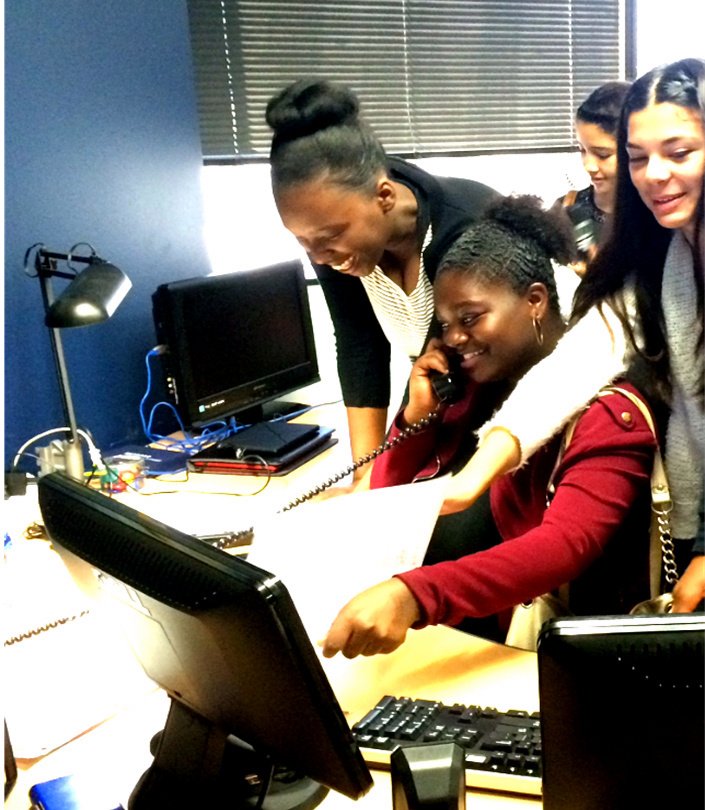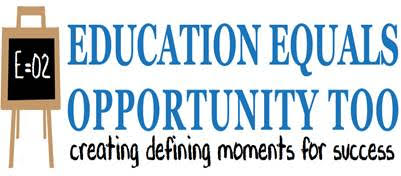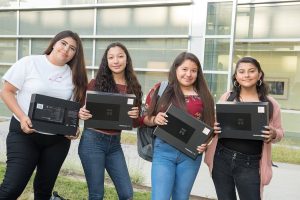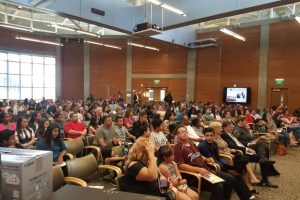
Incentives help at-risk kids earn better grades – Press Telegram
When I was going to eighth grade in the Chicago suburb of Lombard, I didn’t have a cell phone. Heck, we barely had television back in the 1950s. The word “texting” had not been invented. And so it was with a little bit of trepidation that I accepted an invitation to speak to a class of tech-savvy eighth graders at the Jessie Nelson Middle School in Signal Hill last week. I had been invited by Julie Larkins, who, with her husband, Walter, has created an innovative teaching program through their Education Equals Opportunity, Too, Foundation.
The program is designed to help socially and academically at-risk eighth-graders achieve better grades and learn job interviewing skills. So far, the program is installed at four middle schools: Nelson, Washington, Lindsey and Colin Powell.
Julie and Walter, owners of CDR Financial Services, began the program to disrupt poverty by designing an intervention program to help students improve their grades and obtain better jobs.
Since the program started at Powell Academy five years ago, E Equals O2 has reached 523 eighth-graders. Outcomes have been widely positive, with all students going to high school, GPAs increasing by 23 percent and disciplinary action reduced by 73 percent, according to Julie, who also is president of Leadership Long Beach and a Press-Telegram Amazing Woman in the Business/Entrepreneur Category. As an incentive, the foundation provides a laptop, printer and flash drive to every student who finishes eighth grade with a GPA of 3.5 or above.
The incentives work. As one student said, “At first, I started working harder in school because I wanted the laptop. Then I started getting A’s and B’s and it felt good, so I wanted more.”
But the program is more than just dangling laptops in front of students. The foundation works with LBUSD principals, teachers and counselors who select the students. In addition to school work, students get a variety of other experiences, including field trips to businesses, mentoring and speakers like myself.
Students also must agree to do a certain amount of community service, and parents or guardians are expected to participate in school activities. “No one succeeds without help from someone else,” Walter said. “That’s what we’re trying to do. It’s like throwing pebbles into a pond. There’s a ripple effect.”
The program has worked so well that LBUSD officials are talking to Julie and Walter about expanding the program gradually to all of the district’s 15 middle schools.
I was pleased that I could contribute in some way to this unique program. The students immediately put me at ease with their eagerness to hear what I had to say about the newspaper business and how I got my career started. Their questions were great: What is the best thing you like about your job? asked one boy. Another wanted to know what I did when things didn’t always go the way I wanted them to. One wanted to know what effect my family had on my career. When I suggested that some legislators wanted to lower the voting age to 17, I somewhat jokingly asked: What about letting eighth-graders vote? Elijah raised his hand and said eighth-graders needed to learn more to be able to vote wisely. “We need to be more mature,” he said. Wow, I said, you sound smart enough to vote now. Give Elijah a laptop. I can’t wait to see how many more get their laptops when they graduate in June.



